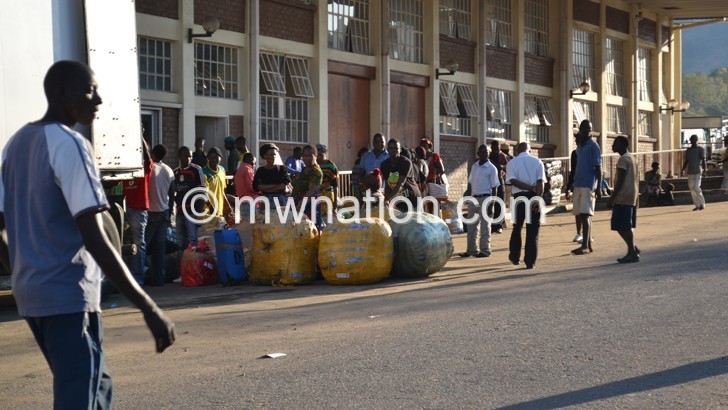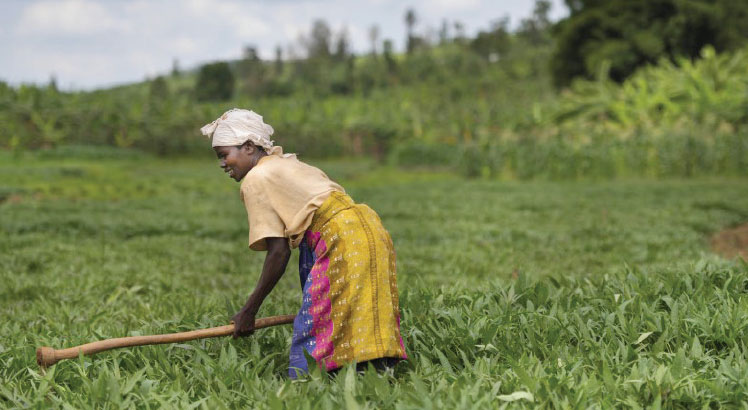Traders get relief
Cross-border traders have breathed a sigh of relief following the reopening of land borders in the region which were closed early January to control the spread of the second wave of Covid-19.
Countries in the Southern Africa Development Community (Sadc), including neigbouring Mozambique, Zimbabwe and regional economic hub South Africa , which are Malawi’s key trade partners, took steps to reopen their borders on Monday when South Africa officially announced the re-opening of its busiest entry point Beitbridge, which borders Zimbabwe.

South Africa, which is Malawi’s largest trading partner in Africa, closed its 20 land borders on January 11 after large traveller volumes caused massive bottlenecks, particularly at the Beitbridge and Lebombo border with Mozambique.
The two borders developed into “super-spreader” events, with more than 100 confirmed Covid-19 cases recorded at Beitbridge border alone.
For the past month, travel into and out of South Africa through these border posts were limited to only a number of reasons, including the transportation of fuel, cargo and goods as well as emergency medical supplies.
This development hugely affected cross-border traders as they could no longer travel to South Africa to buy goods.
Cross-border Traders Association of Malawi president Esther Tchukambiri said in an interview on Tuesday that the re-opening of the land borders will bring businesses back on their feet.
She said many cross-borders traders in Malawi heavily rely on goods from South Africa; hence, they experienced a slowdown in their businesses because of operational interruptions in movement.
“We resorted to online shopping, which has numerous challenges, including loss of property and high cost of buying and getting the goods into the country. This is, therefore, a relief to us,” said Tchukambiri.
She, however, lamented the high cost of accessing a Covid-19 test certificate, which is now part of the requisite travel document.
Said Tchukambiri: “In other countries, for example Zambia, the government is providing these certificates for free, but this is not the case in Malawi.
“At about K37 500, we find this to be detrimental for businesses that are already struggling. Our plea to government is to reduce this cost if it cannot offer the certificates for free.”
Chamber for Small and Medium Enterprises executive secretary James Chiutsi shared similar sentiments, indicating that businesses were facing challenges in view of the shutdown.
“We have several members in the import and export business that clearly lost their incomes. The reciprocal effect was that these businesses failed to satisfy their needs and remain in business,” he said.
Commenting on the economic front on land border opening, University of Malawi’s Chancellor College economics professor Ben Kaluwa said economically, the reopening of land borders is good news to traders.
He nonetheless cautioned traders to take extra care and not import Covid-19 into the country.
Said Kaluwa: “The restrictions significantly affected the Malawi economy through a number of pathways in particular the traders who depend on cross-border trade.
“Now with this reopening, we should be able to see some improvement, especially on the revenue side for the country.”
Earlier, Ministry of Trade spokesperson Mayeso Msokera admitted that the Covid-19 pandemic hugely affected volumes of trade between Malawi and its major trading partners who adopted measures to mitigate the spreading of the virus.
Cross-border trade has been a major feature of Malawi’s economic and social landscape, with available data indicating it plays a huge role in Africa and Malawi inclusive.
In the Sadc region, for example, cross- border trade is estimated to be worth $17.6 billion per year, approximately 30 to 40 percent of total regional trade.
Meanwhile, Malawi deposited the instruments for ratifying the African Continental Free Trade Area with the African Union, effectively consenting to the trade deal which seeks to provide the opportunity for Africa to create the world’s largest free trade area with potential to converge 1.3 billion people within an estimated $2.5 trillion economic bloc.
As part of land border reopening in South Africa, for example, a host of new interventions are being implemented to prevent the chaos witnessed over the festive period, including that trucks will be limited to a 700-metre queue, according to Business Insider South Africa.
It said as soon as the queues become longer than that, trucks will be diverted to rest stops.
More staff have also been deployed and a ticket system adopted to limit the number of Covid-19 tests that can be done at the border posts.
In addition, the reopening plan includes a crackdown on fake Covid-19 test certificates, which means that any person presenting themselves at any of the borders with fake Covid-19 certificates will be denied entry and barred from visiting South Africa for at least five years, the paper quoted Home Affairs Minister Aaron Motsoaledi as having said.
Travel regulations require all persons entering South Africa from abroad whether via land or air to present a negative Covid-19 test result and a number of fake tests results have been seized at the borders.





